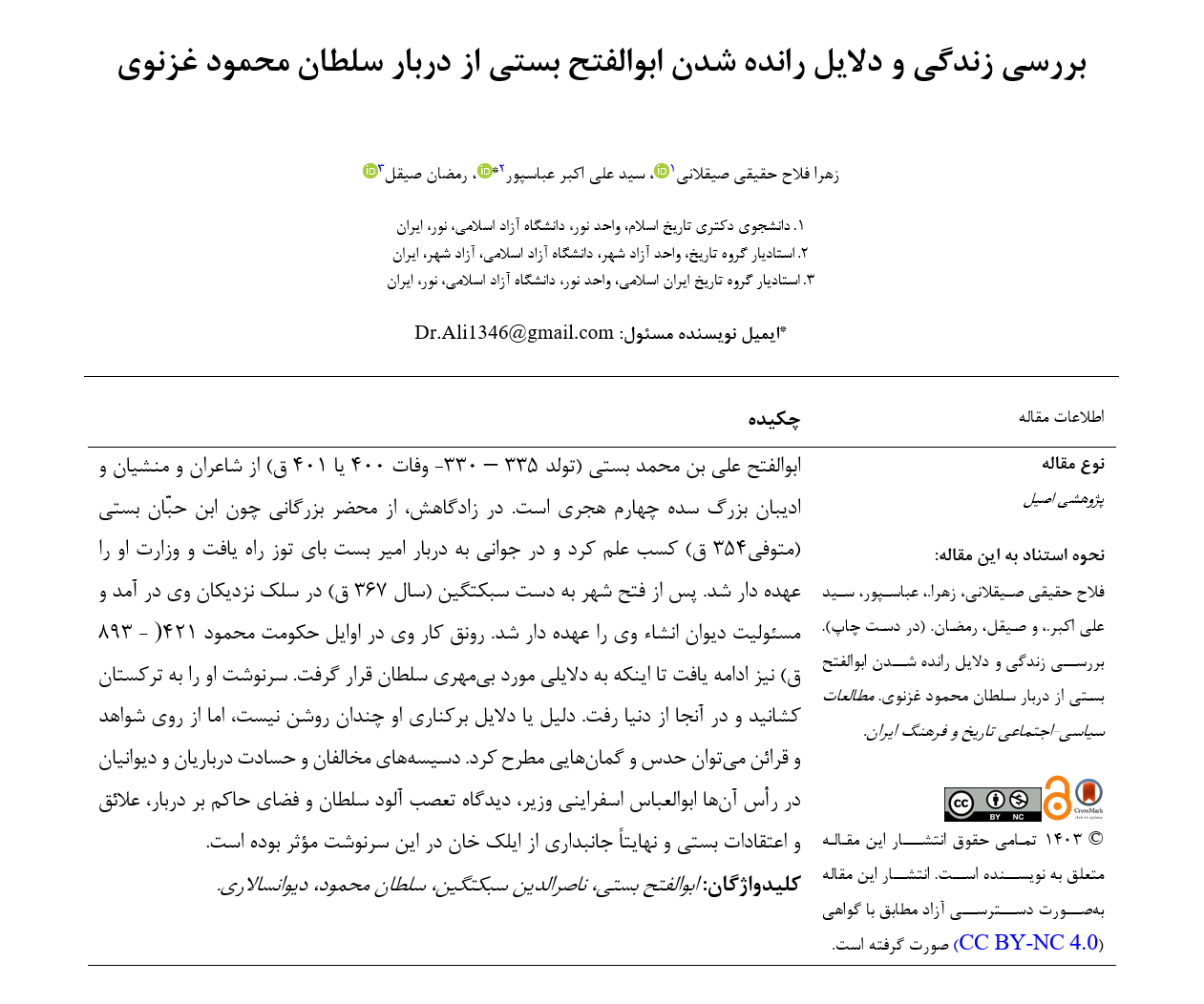Examining the Life and Reasons for the Banishment of Abu al-Fath Busti from the Court of Sultan Mahmud of Ghazni
Keywords:
Abolfath Basti, Naser al-Din Sabkatkin, Sultan Mahmud, BureaucracyAbstract
Abu al-Fath Ali ibn Muhammad al-Busti (born 942–947 CE, died 1009 or 1010 CE) was one of the prominent poets, secretaries, and scholars of the 10th century CE. In his birthplace, he studied under renowned figures such as Ibn Hibban al-Busti (d. 965 CE) and later, in his youth, entered the court of Emir Bust Bay Toz, assuming the role of his vizier. After the city was conquered by Sabuktigin in 978 CE, he became one of Sabuktigin’s close associates and took charge of his correspondence office. His career flourished during the early reign of Mahmud of Ghazni (r. 999–1030 CE) until he fell out of favor with the sultan for unknown reasons. This turn of events led him to Turkestan, where he eventually passed away. The exact reason(s) for his dismissal are unclear, but some conjectures can be made based on existing evidence. Intrigues by rivals and the jealousy of courtiers and bureaucrats, notably Vizier Abu'l-Abbas Isfaraini, Sultan Mahmud’s biased views, the prevailing atmosphere at the court, Busti’s personal interests and beliefs, and his support for Ilik Khan all likely contributed to his downfall.
Downloads








